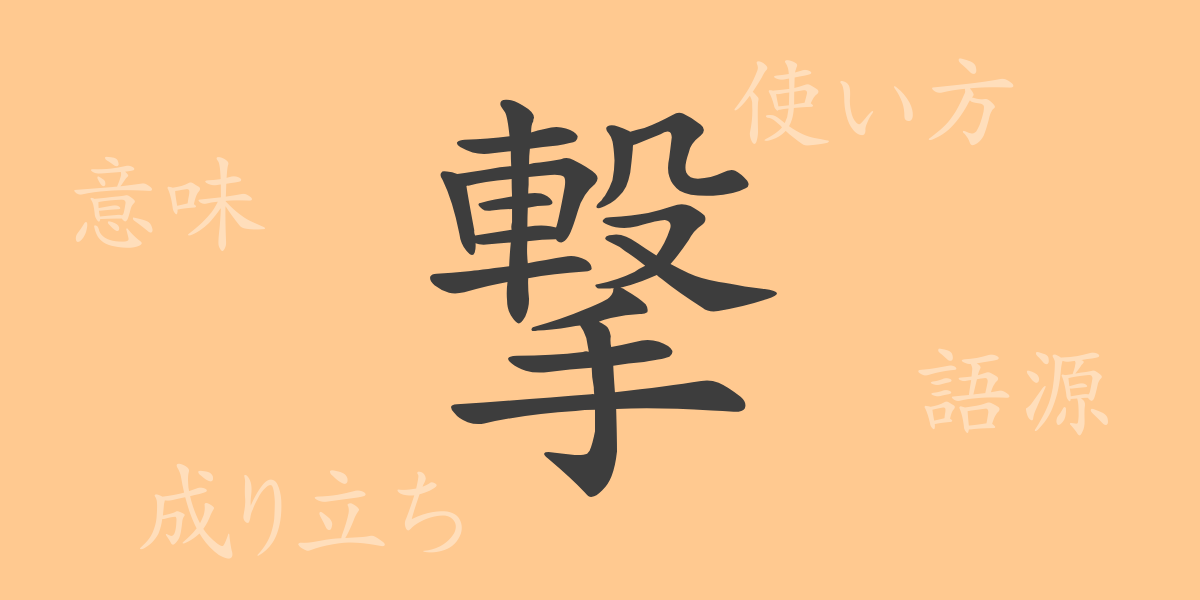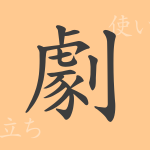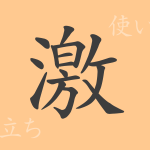Japanese is a language rich in kanji, each with its own unique history and meaning. The character “撃(げき, geki)” is one such kanji, known for its strength and dynamism, and is frequently used in various idiomatic expressions. In this article, we will delve into the origins, modern usage, meanings, readings, and idiomatic expressions of this compelling kanji.
Origin of 撃(げき, geki) (Etymology)
The kanji “撃(げき, geki)” originates from ancient Chinese oracle bone script. Initially, it was a pictographic character depicting a hand holding a weapon and striking an enemy. Throughout history, it has been commonly used in contexts related to battle and competition, symbolizing powerful actions such as attacking or striking. This robust character was adopted into the Japanese language, carrying the same strong connotations.
Meanings and Uses of 撃(げき, geki)
“撃(げき, geki)” primarily means “to attack” or “to strike.” Depending on the context, it can also imply actions such as hitting, striking back, or repelling. This kanji is used not only in physical combat scenarios but also in metaphorical expressions or to signify psychological impact.
Readings, Stroke Count, and Radical of 撃(げき, geki)
The kanji “撃(げき, geki)” reflects its complexity and richness through its structure.
- Readings: The on’yomi (Chinese reading) is “ゲキ(げき, geki),” and the kun’yomi (Japanese reading) is “うつ(utsu).”
- Stroke count: 15 strokes.
- Radical: The radical is “手(てへん, tehen),” which relates to the hand.
Idioms, Expressions, and Proverbs Using 撃(げき, geki)
There are numerous idioms, expressions, and proverbs that include “撃(げき, geki),” each with its own distinct meaning. For example:
- 攻撃 (こうげき, kougeki): Refers to an offensive action against an enemy.
- 反撃 (はんげき, hangeki): Denotes a counterattack or retaliatory action.
- 鼓舞激励 (こぶげきれい, kobugekirei): Means to inspire and encourage others.
These expressions highlight the diverse applications of “撃(げき, geki)” in the Japanese language.
Conclusion on 撃(げき, geki)
The kanji “撃(げき, geki)” plays a vital role in Japanese expressions, owing to its deep historical roots and rich meanings. From physical attacks to psychological impacts, this kanji is used in a wide range of situations, symbolizing the power of language. In daily conversations, literature, and business communications, words containing “撃(げき, geki)” leave a strong impression and contribute to the clarity and impact of messages.

























